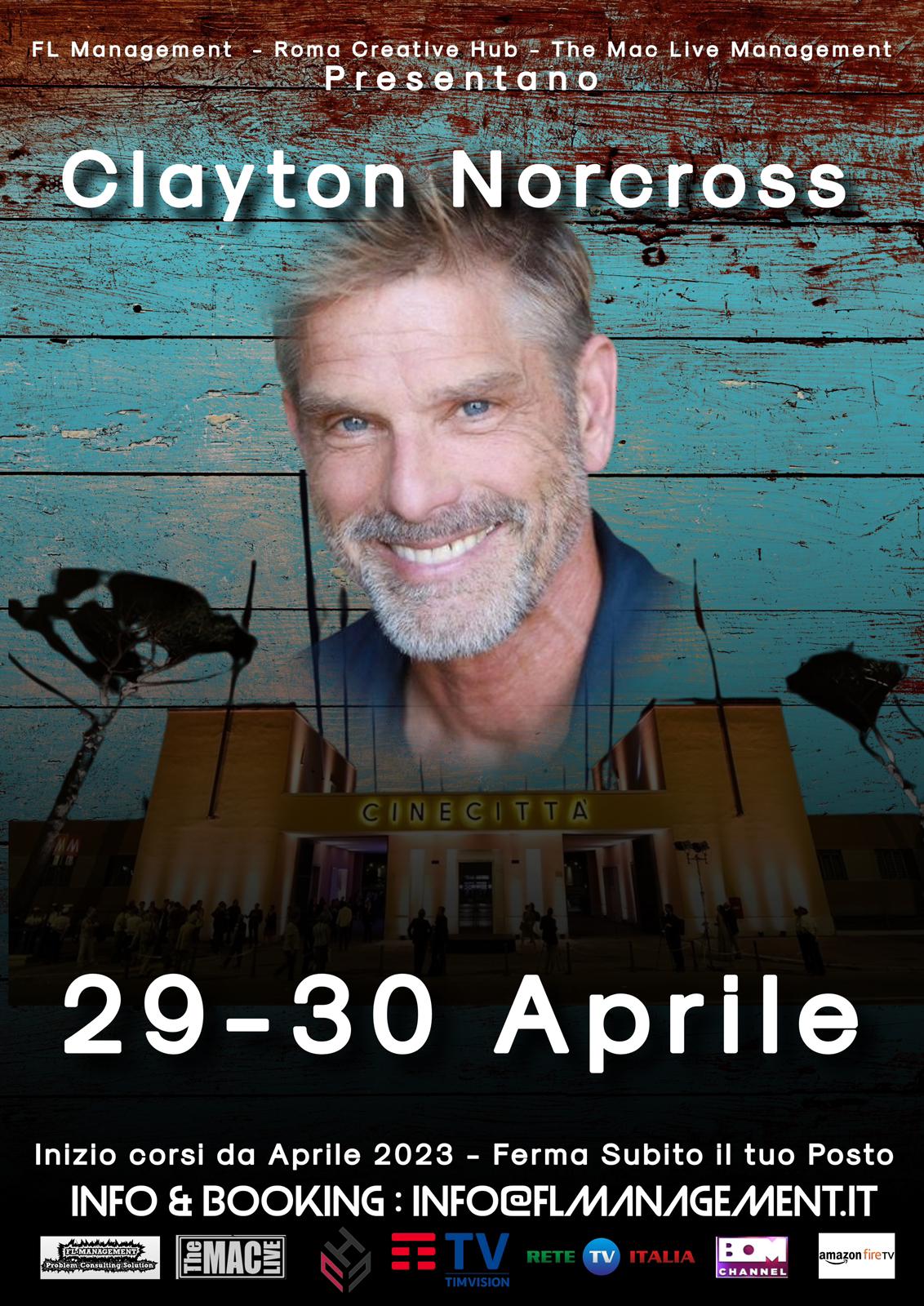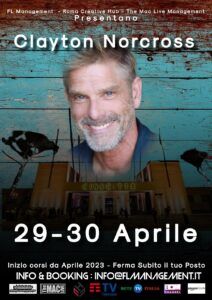Clayton Norcross: Creative Preparation

CLAYTON NORCROSS
Acting Technique and practice curriculum
The first task of the actor is to discover with a deliberate and repeatable process of internal and external research, who he/she “IS”, in the designated role. This process I use is simple, but deceptively profound, and has served me well in every medium, TV/Film/or Theater. I call it the 10 questions; (plus a few particulars that I may add depending on the complexity and weight of the character in the piece in question).
Each of the starter questions below has a broad range of functions and can be expanded as necessary for ones needs in a particular area. For example, when I play a “bad guy”, I must remember the first axiom I learned in Acting school: never negate or judge the motivation of your character. If I am to play him effectively, I must find a way to buy in whole heartedly to the reasons he says and does whatever he does. After all, “bad guys” don’t know they are bad! All of us humans have perfectly logical reasons (to us) for whatever convoluted behavior we perpetrate on ourselves or others. I must enter into an organic process of discovery to learn what part of my creative instrument can identify with, indeed rationalize, the most sordid behavior imaginable. I must know who I am and why I am to be “ private in public” with my character.
The actor is an ideally flexible phenomenon that transcends judgement or stereotype. I, for example, am not THORNE (my character in BEAUTIFUL). He is a character within my wheelhouse that issued from me and this creative process, matriculated through the requirements of the scripted story. I generally write out my answers, as brief and concisely as possible, usually right on the back of my script so that they are quickly accessible whenever a moment of uncertainty arises, or a new direction from the director.
WHO? (Am I?) Is an obviously broad question with a thousand answers; we will start here to view the landscape, as we “breakdown” the story and the characters place in it. We will take a short scene and practice in small groups what we observe fills in the information to help us understand the character and the pivotal role he must fulfill in the story. Then we will come together and share our research after taking a shot at the scene to demonstrate our research in practice. The discussion afterwards is usually very revealing as we may see 10 different interpretations of the same scene.
WHAT? (Do I want? ) is one of the essential ways that I will apply this question. The answers may be one or many; but we will see first hand that every character is motivated by a complex scheme of desires that he is COMPELLED to fulfill.
WHY? (Do I want it?) is again a starting place and again there can be a very complex answer. We will seek to breakdown the primary reasons that the character is driven into the drama inherent in any well written story.
WHEN? (Do I want it?) The urgency of a desire is often a pivotal component in a given characters motivation. This is one of the prime elements that will sustain him on his drive through a legion of obstacles seeking to thwart his desire. This quest as the others can also be asked locally in a significant exchange of lines between to characters or in a broader context of the story as a whole.
WHERE? ( Am I ?) One of the first ways I will apply this question is to the environment I find myself in the story; is it friendly or hostile? How likely am I to find help or understanding in the current context, where all the chips may be down, and the Hero of the story often finds himself alone against the storm.
HOW? ( Will I get what I want?) Again this question may have several answers. The Characters methods may morph throughout the unfolding of the story as various antagonists and obstacles block his path. We must explore each change and find its organic context for why and where it occurs in the story. A well written script will have some character revealing reactions and specializied modifications to the original plan to maximize the surprise/suspense element for the audience. We learn a lot about our protagonist by what he does, and how he adapts to changing situations.
TECHNICAL RESEARCH: This is a broad field that will require the actor to get on line or into the library, and find out what certain elements of the story may require him to understand to play effectively. If, for example, I have never fired a machinegun before, I may want to pull up some past films or YouTube video on how that looks and feels. Is it smooth as silk as I mow down my opponents, or will it knock me on my ass? I need to know what to expect! I need to get comfortable with martial arts, or dance, or a thousand other specialized skills that may be required of me when the cameras roll!
LOVE/HATE: Two powerful emotions that drive all sorts of behavior and thought process. Thinking on camera is gold! Our faces and body language shift in very subtle ways that cannot be planned technically, but must be revealed from an organic process of discovery that unmasks these strong forces in our lives.
PERSONALIZATION: Where do I have similar feelings, experience or motivation in my own personal life that approximate the plight of my character. This is a rich field to harvest that will pay great dividends in the authentic ring of a characters expression in the work. This endeavors to bring the very personal into the public view where it assists us in very palpable way that is ultimately often alchemical in nature. Once we choose to be so naked in public, there are unlimited interesting, surprising, stunning, and revealing revelations that may emerge to transcend any boundries we might otherwise be limited by. A powerful example for me is Joaquin Phoenix Oscar winning performance in JOKER. I am reasonably certain that Joaquin is not a psychotic killer. But you’d never know it from the gripping cold blooded behavior he portrays in the film. Somewhere in his checkered past is the alienation and rage he experienced to come up with such a heinous but authentic character in this monumental achievement. This is why they say an actor “gives a performance”; it is indeed a gift of very intimate information to fulfill the requirements of an engaging story, that can be told no other way. That’s why he gets the big bucks, while many other less courageous actors may shrink at the chance.
SECRET: ( Hidden information) What key scrap of information does my character know that gives me a decided advantage in the exchange of efforts to win the battle of wants and needs. This question is particularly valuable for main characters that we observe in their “normal lives” at the top of the story. The secret will come to play a significant part in his ultimate victory or demise as the story concludes. This element helps to maintain a sense of jeopardy and suspense essential in sustaining dramatic tension and therefore a fulfilling experience for the audience.
Finally we will apply all these to a final scene performance after all the above questions have been as thoroughly applied as time allows and displayed in a final scene that will often look much different than the first cursory run at it by the same actors. The value of research will be evident.
INIZIO CORSO E Durata
29 e 30 aprile 2023
PREZZO E MODALITà DI PAGAMENTO
Iscrizioni in sede, oppure contattando la segreteria (06.69426354 – segreteria@romafilmacademy.it); CLICCA QUI, LASCIA I TUOI CONTATTI PER MAGGIORI INFORMAZIONI!


